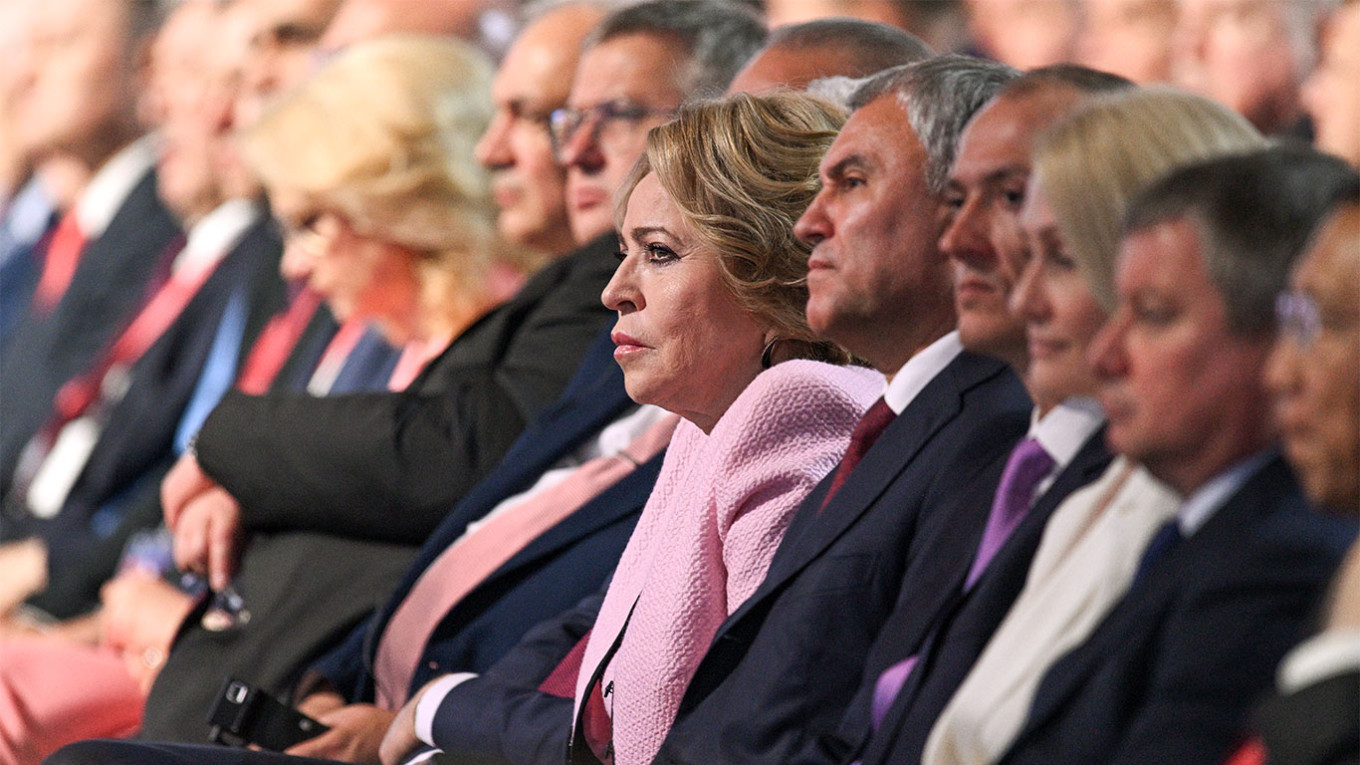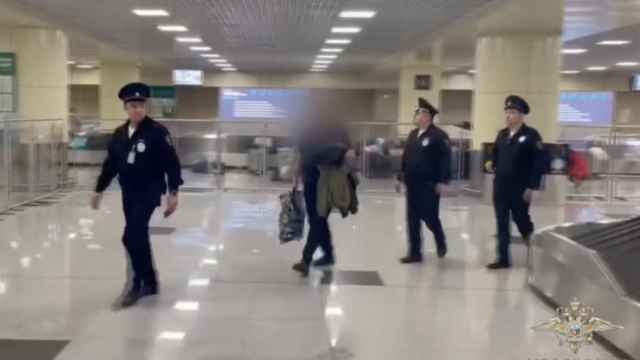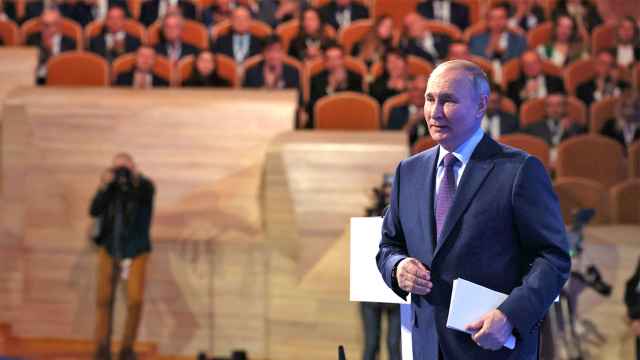Russian officials are opting out of traditional European travel destinations in favor of those closer to home for their summer vacations, the investigative outlet Vyorstka reported Wednesday, citing multiple anonymous lawmakers and regional officials.
Western sanctions and the Kremlin’s strict controls on foreign travel are limiting options for Russian civil servants to domestic resorts, ex-Soviet countries and their dachas.
“Only crazy officials would go abroad now,” Vyorstka quoted an unnamed senator as saying.
“You’ll be given the boot like a cork from a champagne bottle, and count yourself lucky if you don’t end up on trial,” they added.
Another lawmaker said they and their colleagues who own property in Europe are scrambling to sell it amid uncertainty as to when Russia’s war in Ukraine will end and EU sanctions are potentially lifted.
“It’s not that I’m worried or want to go there, I’m fine vacationing in Russia. It’s just that the house [in Europe] needs care, I’m afraid everything will rot or something will be stolen,” they said.
Besides summer homes, Vyorstka named Black Sea resorts — including those in annexed Crimea — the mountainous Siberian Altai republic and the volcanic Far East Kamchatka peninsula as the most popular vacation spots for Russian officials.
Those destinations have grown more crowded with ordinary Russians after European countries tightened visa procedures and banned direct flights in retaliation to Russia’s invasion of Ukraine last year.
Officials unaffected by the Kremlin’s travel bans spend their summer vacations in Turkey, Uzbekistan, Belarus, Kazakhstan, Azerbaijan, Saudi Arabia and Moldova, according to Vyorstka.
Officials are also forbidding family members to post travel photos on social media “not to anger the [Russian] people who are already angry,” Vyorstka quoted an unnamed Moscow Mayor’s Office spokesperson as saying.
Children and close relatives of top Russian officials have frequently been spotted vacationing abroad, including in NATO and EU states, despite the targeted Western sanctions against their parents and visa restrictions for Russian nationals.
The controversy over civil servants’ wartime visits to luxury resorts overseas have led to informal bans on local officials from traveling abroad.
A Message from The Moscow Times:
Dear readers,
We are facing unprecedented challenges. Russia's Prosecutor General's Office has designated The Moscow Times as an "undesirable" organization, criminalizing our work and putting our staff at risk of prosecution. This follows our earlier unjust labeling as a "foreign agent."
These actions are direct attempts to silence independent journalism in Russia. The authorities claim our work "discredits the decisions of the Russian leadership." We see things differently: we strive to provide accurate, unbiased reporting on Russia.
We, the journalists of The Moscow Times, refuse to be silenced. But to continue our work, we need your help.
Your support, no matter how small, makes a world of difference. If you can, please support us monthly starting from just $2. It's quick to set up, and every contribution makes a significant impact.
By supporting The Moscow Times, you're defending open, independent journalism in the face of repression. Thank you for standing with us.
Remind me later.






